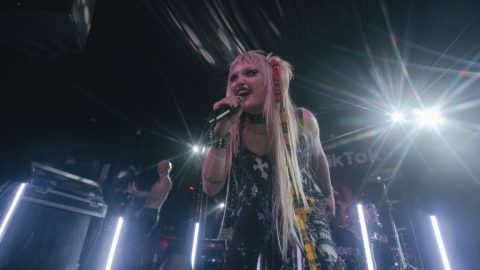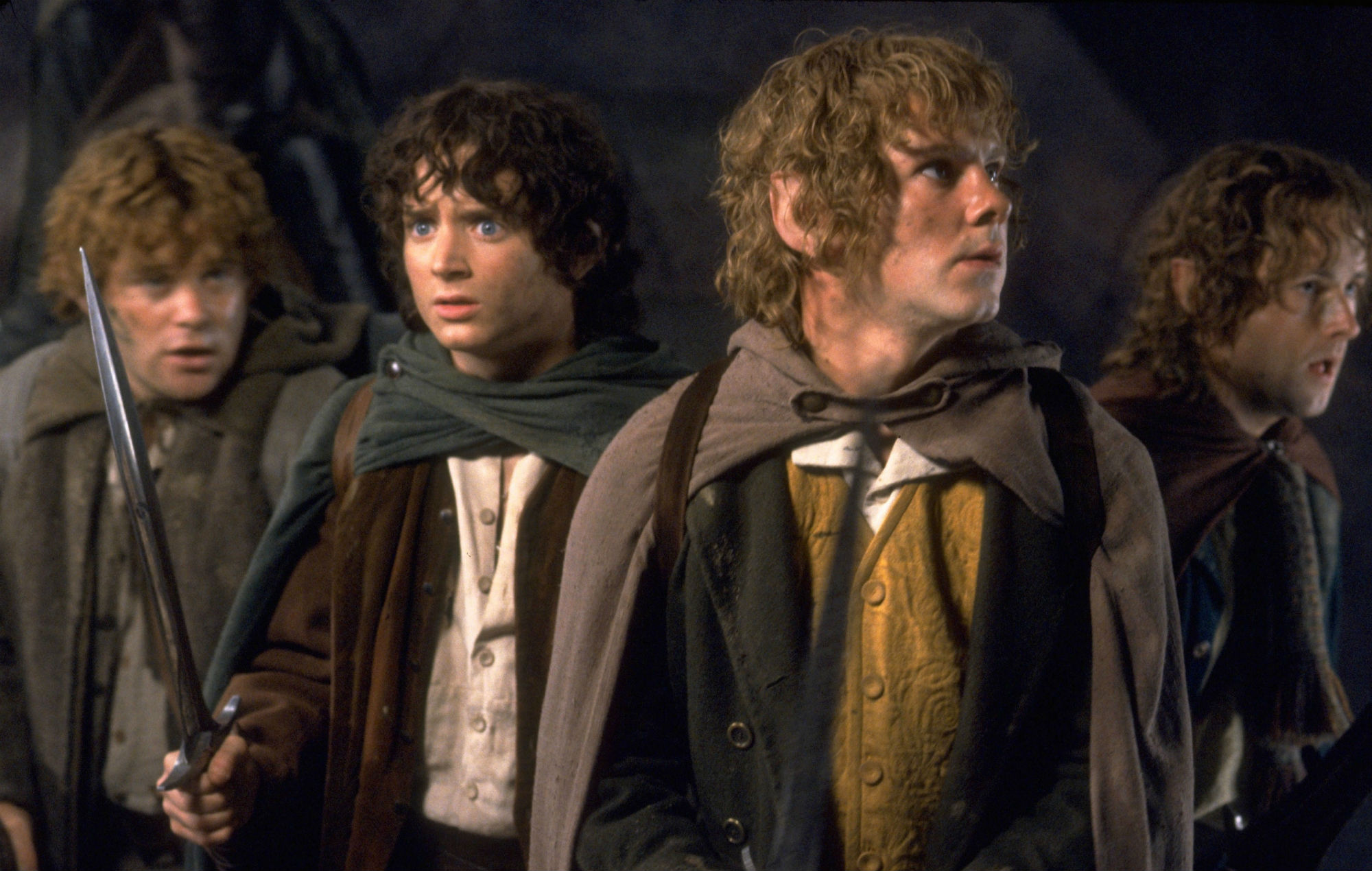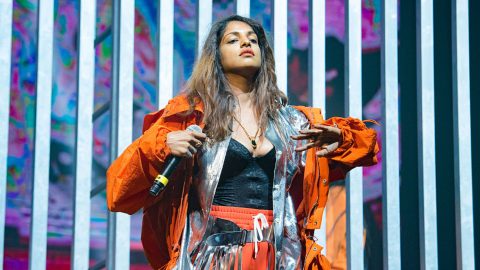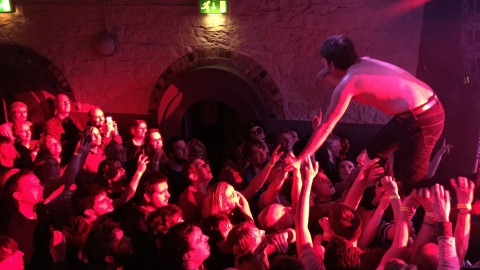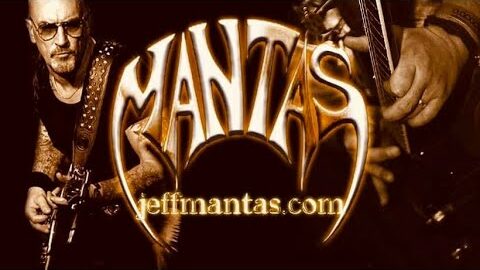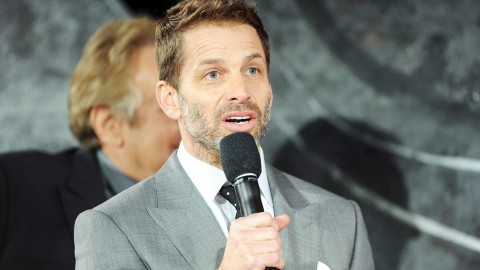
Industry insiders and health experts have spoken to NME about what US fans can expect from live music during the next stage of the ongoing pandemic.
With some tours and festivals continuing to be postponed and others’ rescheduled dates due to start in the months ahead, some concern and confusion remains over what to expect from the state of live music this year. The producers of Governors Ball music festival, the people behind ticket-selling app Bandsintown, and an infectious disease specialist told us their insights and projections for events and festivals in 2022.
Live music discovery and ticket purchasing app Bandsintown have reported an increase of 8 million users in the last six months. Fabrice Sergent, the app’s managing partner, told NME that those numbers were “pretty astonishing,” adding that recent ticket-buying behaviour in the US showed that “demand for live events is very strong.”
“In terms of the number of upcoming shows and festivals being announced [in 2022], we’re still at about half of the number that were announced during this same period of time in the US in 2019 and 2020,” he said. Even with 50 per cent less shows, however, Bandsintown still described “a high level of consumer interest”.
“We saw a very strong January in terms of the number of tickets sold; it was twice as many as 2019. It’s about 100 per cent gross in 2022 compared to January 2019. It tells the story that there will be an unprecedented level of demand this year.”
Despite the fact that there were 50 per cent fewer shows to attend in 2021 compared to 2019, the numbers revealed an intense fan demand to go to gigs last year with twice as many tickets sold.
“It was insane,” Sergeant told NME. “You could ask pretty much ask all ticketing companies and everybody tells the same story – as many tickets as they would’ve sold within a year that they sold within six months.”

For Sergent, the numbers also tell the story of just how ready fans are to get back to live music.
“It’s one of the last tribal experiences, which makes people happier and the world better,” he said. “When you go to a show, you’re [leaving] the show a little smarter, a bit more tolerant. You’re a bit more open to others because you were in the mosh-pit together cheering for the same artist. It’s incredible to see how the pandemic proved that point – that people miss this tribal experience and that it’s vital to them as human beings.”
Even with numbers reflecting an increased level of fan confidence, there are still reports that suggest purchasing tickets during the pandemic can be a gamble.
In 2021, multiple ticket vendors were criticised for postponing events indefinitely due to COVID without offering refunds to fans. In January, Dead And Company fans who were no longer comfortable attending the band’s run of Mexico City shows amid the surge of Omicron cases started a petition to force organisers to refund them up to around $15,000 that they’d spent on show packages.
Though refund policies vary across events, co-founder of Founders Entertainment Tom Russell (the producers of New York City’s Governor’s Ball), told NME that he believes offering full refunds to fans is still “the right thing to do.”
“If a show is cancelled due to COVID and people don’t get what they paid for, they should get their money back or be able to roll over their ticket for the next year,” Russell told NME.

After being called off in 2020, the festival, which takes place this June, came back to the city last year. Russell told us that he considered their 2021 event an overall success – but that feedback from fans pushed the team to make more room for social distancing as they return to Citi Field this year.
Governors Ball announced last August that they’d require vaccination or proof of a negative COVID test for entry. However, the co-founder told us that requirements may change. “We’re going to be working in close consultation with local authorities to determine the best path forward when it comes to this year’s festival,” he said.
Even though COVID rates, mandates, and regulations are constantly changing, Founders Entertainment said they were “really optimistic about the future” and don’t foresee cancellation or postponement even if virus rates increase.
“Looking at the current data, things seem to be moving in the right direction on all levels and we are hopeful that things keep going that way,” Russell said. “But even if they don’t, our 2021 show proved that festivals can be done safely and people are eager to enjoy live music, no matter what.”

After being postponed three times during the pandemic, Coachella Valley Music and Arts Festival is set to return to Southern California this April. One of the world’s biggest festivals, the event draws up to 125,000 fans to the Indio desert a day, which is why health officials initially forced the event to cancel, pointing to the high risk of viral spread due to the large number of attendees.
But on Tuesday (February 15), the festival made an uncommon move for recent US music events of its size – announcing they had dropped all COVID-19 precautions for attendees.
“In accordance with local guidelines, there will be no vaccination, testing or masking requirements at Coachella 2022,” their safety page was updated to read. The page does clarify however that this policy could change based on any updated California Department of Public Health guidelines.
Music journalist, Harry Levin planned to attend Coachella back in April of 2020 before its first cancellation and is looking forward to finally going this year, even with the updated safety rules. “I fully agree with getting rid of the mask requirements,” he told NME. “To try and enforce that would only add extra hassle for staff and attendees. Plus, the California government majorly relaxed the mask mandate statewide.”
Earlier this week, California’s Department of Public Health announced that as of Wednesday (February 16) vaccination proof will no longer be required for large outdoor events.
“As far as the testing and vaccination, that doesn’t make too much of a difference to me seeing as I am vaccinated,” Levin went on to say. “Overall it seems like they’re following science. Cases are dropping super-fast and all the research says the variants are getting less severe.”

Cases of the Omicron variant of COVID are still decreasing across the US. However, Dr Ross McKinney Jr., an infectious disease specialist and chief scientific officer of The Association of American Medical Colleges (AAMC), told NME that although “we may be in a quiet period in terms of COVID” during this upcoming festival season “there’s still no way to tell” if that will last.
“You can look at the trends of coronavirus in general, but it’s hard to tell with these variants,” Dr McKinney Jr said. “The good news as we sit here in February is that the omicron wave has crested and is diminishing.
“You’d expect [cases] to peak in the winter and fall, with the summer and late spring to be a relatively safe time because most respiratory viruses are most widespread when we’re in colder seasons.”
Although COVID will likely “become endemic, which means there’s going to be low numbers, but it’s going to pop up periodically in certain places,” according to the doctor, music festivals still have varying levels of risk for attendees.
“One of the things about a festival is it brings together people from a lot of different places, so that’s a concern. But many of the festivals are outdoors, so that’s less of a concern.” Dr McKinney Jr also told us “noisy environments tend to be places that promote transmission” because if people are yelling or speaking loudly over the music, they’re “more likely to be producing virus” if they’re infected.
Despite that opportunity for spread, he argued that “the level of virus in the community is low enough that a lot of festivals and outdoor concerts will likely go the same way” as Coachella, with more dropping mask mandates for attendees.
Outside of mask mandates, there is still concern over the risk associated with no longer requiring vaccine verification for event attendance. Though Dr Mckinney Jr. understands why events would “just throw their hands up and say ‘It’s not worth the effort’,” he still thinks that “it’s the right thing to do to require vaccination.”
“When people are vaccinated, they are less likely to get sick themselves and less likely to make others ill,” he explained. “It’s not perfect, but right after your booster [you can have] as high as 90 per cent protection against getting infected at all and later on you’re still less likely to get seriously ill. Even if you do get infected, your period of being infectious will likely be shorter.”

For fans that are still nervous about contracting the virus during an event, Dr. McKinney Jr. said that there are actions they can take to attend while lowering their risk of contracting the virus.
“If I was going to an event, I would want to be vaccinated and I would want to wear a mask,” he said. “If you’re unvaccinated you’ve got a 20 times higher rate or more chance of dying if you get [COVID].”
He added: “If you’re in a position where you can maintain spacing, and in a lot of concerts and festivals you can, that also helps. So masks, vaccines, and a little bit of distance between you and the person next to you can help you protect yourself.”
Fans and event producers are hopeful that with safety precautions and everything they’ve learned up until this point of the pandemic, they’ll be able to enjoy this festival season after two years of uncertainty and cancelations.
“It was devastating having to cancel in 2020. People were so excited and we had some really special things in store,” Russell told NME. “We worked feverishly on the 2021 event and how to make it work in a safe and enjoyable way. Thankfully it worked out and was nothing short of incredible.
“You could feel the palpable energy in the crowd, and it was just so nice to see so many smiling faces watching music, high-fiving their friends, and loving life.”
Meanwhile, the UK’s music festival industry has warned that a “perfect storm” created by a live entertainment supply chain crisis, workforce shortages and the effects of Brexit, is likely to impact this summer’s events season.
Speaking ahead of the AIF Festival Congress 2022, on Wednesday (February 15) Paul Reed, CEO of the Association of Independent Festivals said that while the UK “may be emerging from the shadow of the pandemic, this year will not be a case of ‘back to business as usual’ without critical support for festival organisers.”
The post From ticket sales to COVID safety – US industry insiders on the return of live music in 2022 appeared first on NME.

